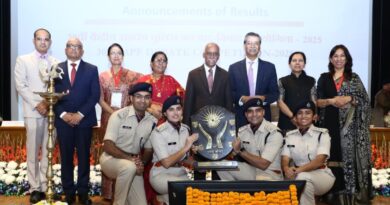Portugal at crossroads of anti-racism, say UN experts
(Judicial Quest News Network)
GENEVA (8 December 2021) – People of African descent in Portugal experience systemic racism in similar ways despite varied individual circumstances, UN human rights experts found after visiting the country.
“Portuguese identity continues to be defined by its colonial past, as well as enslavement and the trade and trafficking of Africans, and racial equality efforts have not confronted the importance of a broad-based renegotiation of Portuguese identity,” Dominique Day, head of the UN Working Group of Experts on People of African Descent, said in a statement.
Large anti-racism protests in 2020 called for the revision of colonial narratives, consistent with global conversations on systemic racism in Portugal, the group said.
Members of the Working Group visited Lisbon, Setubal and Porto, to gain first-hand knowledge on racism, racial discrimination, Afrophobia, xenophobia and related intolerance affecting people of African descent in Portugal.
“The Government should import the welcoming narrative it has built in the migration space in order to demonstrate that excellence and innovation rely on embracing diversity and anti-racism. Human rights should not be undermined by political considerations,” Day said.
The delegation, which also included human rights experts Catherine Namakula and Miriam Ekiudoko, welcomed ongoing efforts by the administration to address racial discrimination faced by people of African descent, including the recently approved National Plan to Combat Racism and Discrimination 2021-2025- Portugal Against Racism.
“We note that the emerging discourse on systemic racism in Portugal and its roots in historical processes, has motivated the Government’s engagement with civil society and in defining its anti-racism agenda,” Day said. However, the Working Group noted with concern the prevalence of systemic racism and racially motivated violence and ill-treatment, racial profiling, abuse of authority, frequent police brutality towards people of African descent.
During the mission, the human rights experts engaged with representatives of Government, human rights institutions and civil society.
They also promoted the International Decade for People of African Descent, which runs from 2015 to 2024 and aims both to highlight the contribution of people of African descent to societies and strengthen national, regional and international cooperation to ensure the human rights of people of African descent are respected, promoted and fulfilled.
The Working Group will present its findings and recommendations to the Human Rights Council in September 2022.




